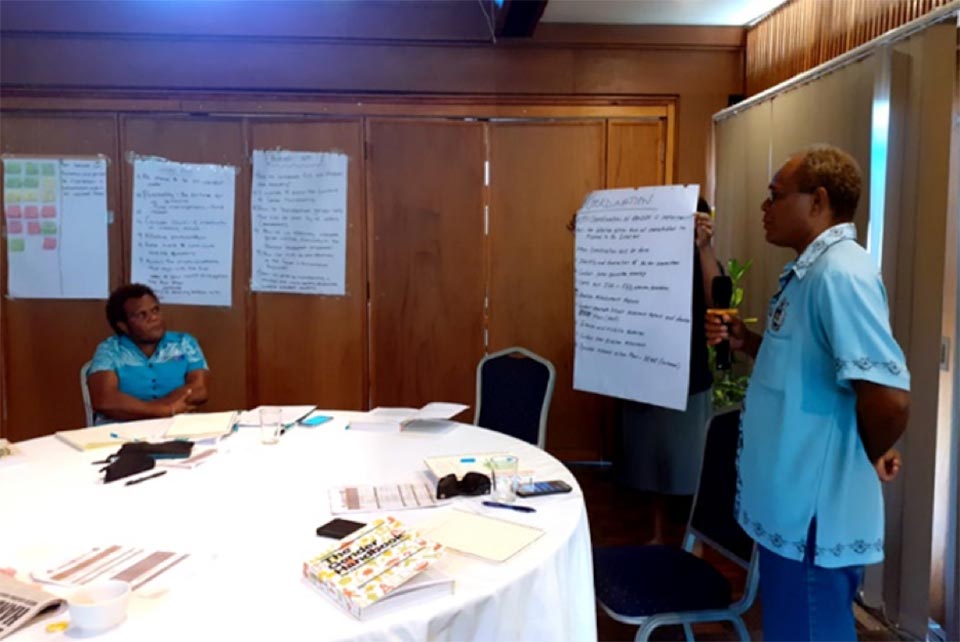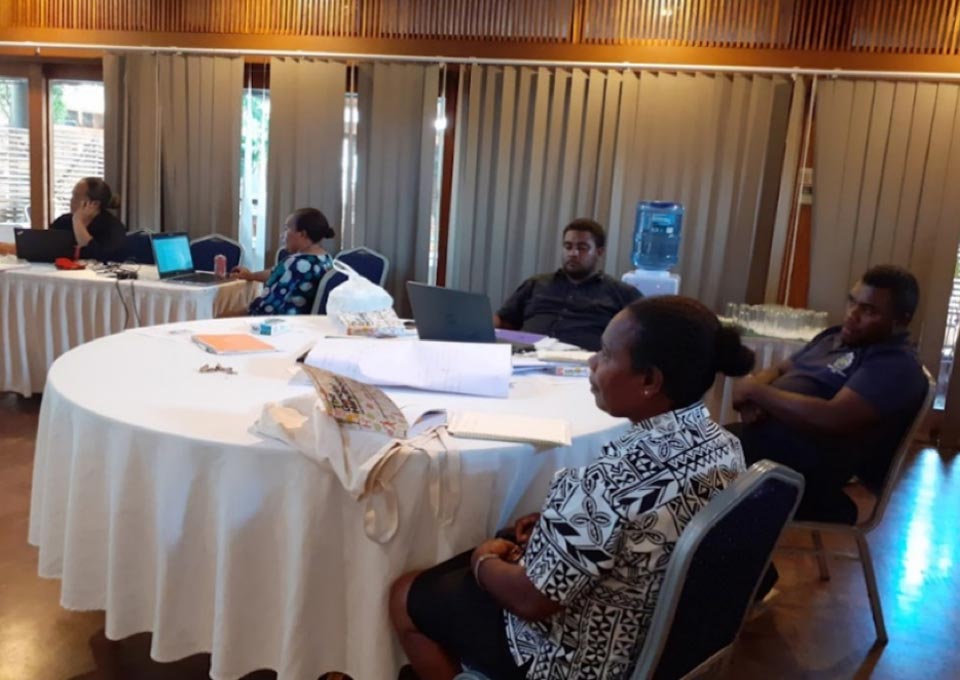
The review of an existing assessment tool used after a disaster from a gender perspective, is helping strengthen national mechanisms in responding to the needs of women, girls and marginalised groups in Solomon Islands, following a humanitarian crisis.
Women and girls in Solomon Islands are disproportionately affected by disasters and crises due to pre-existing gender inequality and discrimination. This makes it harder for them to cope with and recover from crisis situations. Together with lack of reporting, gender and protection issues in the Solomon Islands have often been overlooked in past disasters due to the lack of a Gender Inclusive Initial Damage Assessment (IDA) tool.
UN Women has been advocating for gender-responsive post disaster processes and tools. As a member of the National Protection Committee led by the Ministry of Women, Children, Youth and Family Affairs, UN Women through its ‘Addressing the Gender Inequality of Risk and Promoting Community Resilience in Solomon Islands’ (GIR) project has been advocating for the review of the IDA tool, seeing the need for evidence-based reporting on gender and protection issues during and after disaster and emergency events.
Active consultation with women and women’s involvement in humanitarian and recovery programming is essential as crisis impacts women, girls, boys, and men differently. UN Women recognises the role of evidence-based reporting and data collection as essential to replicate Gender in Humanitarian Action (GiHA) programming at community level and ensure gender-responsive recovery and resilience.
As part of the GIR programme, a four day Gender in Humanitarian Action (GiHA) and Initial Damage Assessment (IDA) review training was held in Honiara, Solomon Islands, late 2020. The training focused on understanding the position of National Disaster Operations Committees’ (N-DOC) within the approved National Disaster Management Plan 2018, and their roles and responsibilities in mainstreaming Gender and Protection in their Initial Damage Assessment (IDA), Detailed Sectorial Assessments (DSA), and Humanitarian Programming.

Participants had the opportunity to learn fundamental issues which influence humanitarian response and recovery mechanisms. These include gender, social inclusion and protection issues like child protection and gender-based violence (GBV) that continually emerge during and after disasters. Participants familiarised themselves with tools such as IDA and DSA assessment tools and were encouraged to practice the application of a Gender Inclusive IDA tool.
Lessons learned from the review of assessment tools have played a major part in response since, informing what worked well and identifying successes, as well as highlighting gaps and challenges. Further identifying the vulnerabilities and capturing the needs of the affected population in all their diversity during and after disaster in humanitarian strategic plans for response is critical. The importance of including women in decision-making with regards to the kind of assistance and protection they need during crisis was also an important highlight during the training.
UN Women, with funding from the Australian Government, is jointly implementing the Addressing the Gender Inequality of Risk and Promoting Community Resilience in Solomon Islands (GIR) project with the United Nations Office for Disaster Risk Reduction (UNDRR) and the International Federation of the Red Cross and Red Crescent Societies (IFRC) and its national society: the Solomon Islands Red Cross Society.
